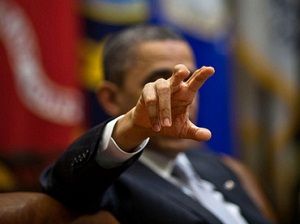 WASHINGTON | No more than a 1% of U.S. citizens accumulate 20% of the income and 35.6% of the wealth (in assets, labor income and capital), which constitutes the largest concentration of wealth on the richest hands since the existence of statistics in this country. But at the same time, they contribute a 38% of federal tax income. In addition, there are 43 states that have their own income tax. In Maryland, for example, it ranges from 2% to 6.25%, but in Tennessee only capital gains and interest are taxed.
WASHINGTON | No more than a 1% of U.S. citizens accumulate 20% of the income and 35.6% of the wealth (in assets, labor income and capital), which constitutes the largest concentration of wealth on the richest hands since the existence of statistics in this country. But at the same time, they contribute a 38% of federal tax income. In addition, there are 43 states that have their own income tax. In Maryland, for example, it ranges from 2% to 6.25%, but in Tennessee only capital gains and interest are taxed.
It just adds to the U.S. fiscal mess. And let’s not forget the deductions. A study by the Income Tax Center this summer revealed that 47% of Americans pay no federal income tax. On one hand, there are those (22.5%) who do not reach the minimum exemption, $20,000; but there is another 24.5% that simply takes advantage of the endless series of exemptions, deductions, fiscal credits … of the U.S. tax system. Moreover, of the remaining 53%, about one-fifth does not pay income tax but rather a (literally) ‘Parallel’ income tax (as it’s described by the Congressional Budget Office itself) called Alternative Minimum Tax (AMT).
The AMT was born in 1969 to tax 155 high-income taxpayers who had found ways to avoid paying even just a dollar to the Treasury. As the exemptions and tricks have multiplied (there are firms of fiscal consultants who have intellectual property rights on the combinations that allow tax breaks), the AMT has expanded to cover more Americans who pay no income tax.
“CLASS STRUGGLE”
Confused? Well, this is what the political debate is getting into in the world’s largest economy: not only into taxes (of which Income tax is just a small part) but into the entire fiscal policy. And that’s where it will be until the end of this year. But there are two key dates. One, the November 23: the day when the ‘super-committee’ formed by 12 legislators –six Democrats and six Republicans–, will have to announce an agreement on how to reduce the public debt by 1.5 trillion dollars (1.12 trillion euros) in the next ten years. The other is the December 3, when both houses of Congress must vote this plan. If there is no agreement, or if it is rejected by Congress, a series of cuts will automatically be imposed in the amount of 600 billion dollars (about 450 billion euros).
These will affect military spending and civil programs, although Medicare and pensions are untouchable. A cut of this size can be what the U.S. needs to fall into zero growth. For one thing, the ‘super-committee’ is going to have a very hard time trying to reach a majority of seven members who agree. Four of them (two Republicans and two Democrats) were already in the Bowles-Simpson Commission, appointed by Obama and composed of ‘notables’, which in December was unable to reach an agreement to achieve a zero deficit in the medium term. And those four members were precisely those who voted against the draft agreement of the Committee.
So the ‘super-committee,’ from the moment it was formed, already has had a difficult past. Besides, Obama has announced that he will veto any law that does not include an increase in taxes on higher incomes. Until now, that meant increasing the federal rate from 33% to 36% for earnings above 250,000 dollars (joint) or 182,000 (if single), but now there are hints that Obama could settle for an extra tax of 5.6% to individuals with annual incomes of over one million dollars. The Republicans, meanwhile, have reacted by saying that this measure will be the beginning of none other than an actual “class struggle” in the U.S.
For now, the only clear thing is that whatever solution is imposed, it will mostly be a farce, no better example than what happened to the August agreement on spending cuts, which avoided a default: 99.12% of the adjustment will be carried out after the 2012 elections.





Be the first to comment on "A US super-committee for a US super-comedy"